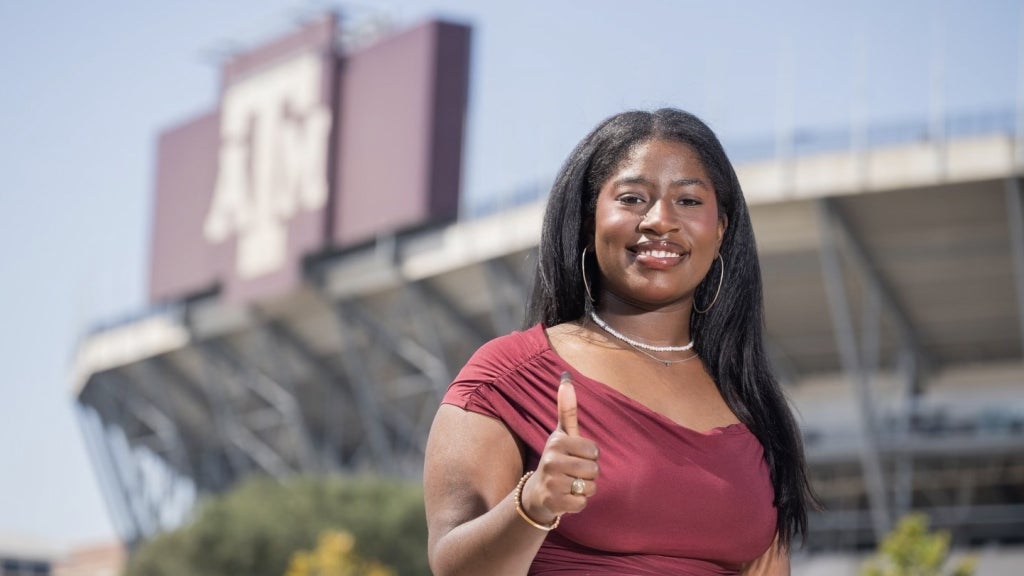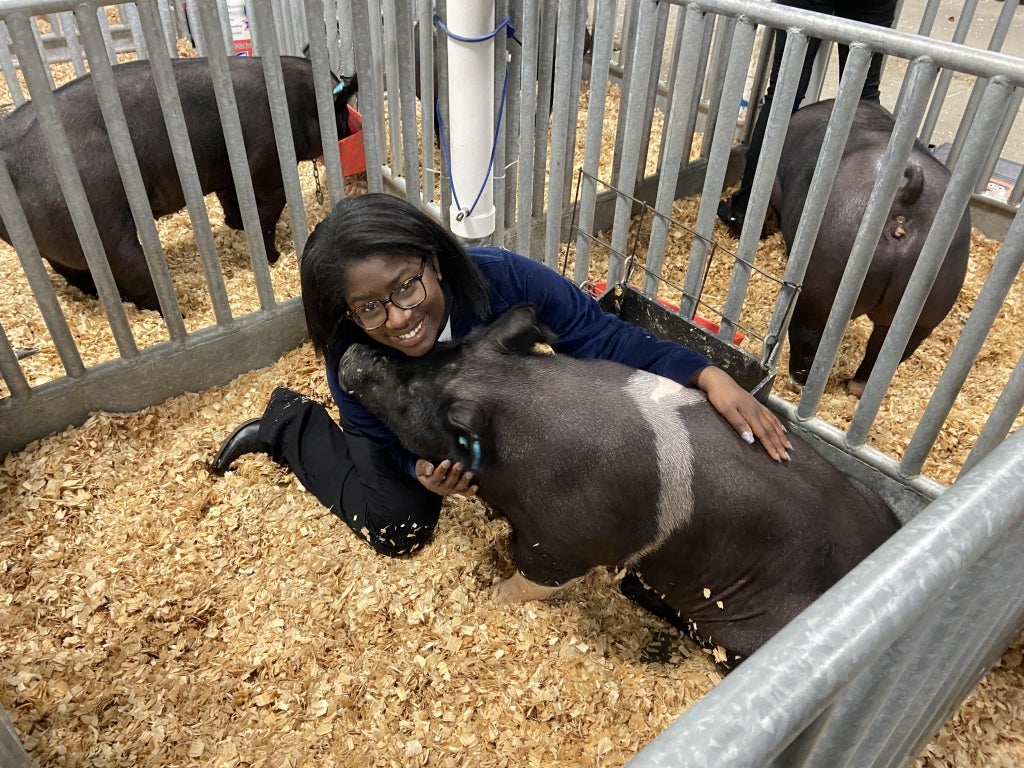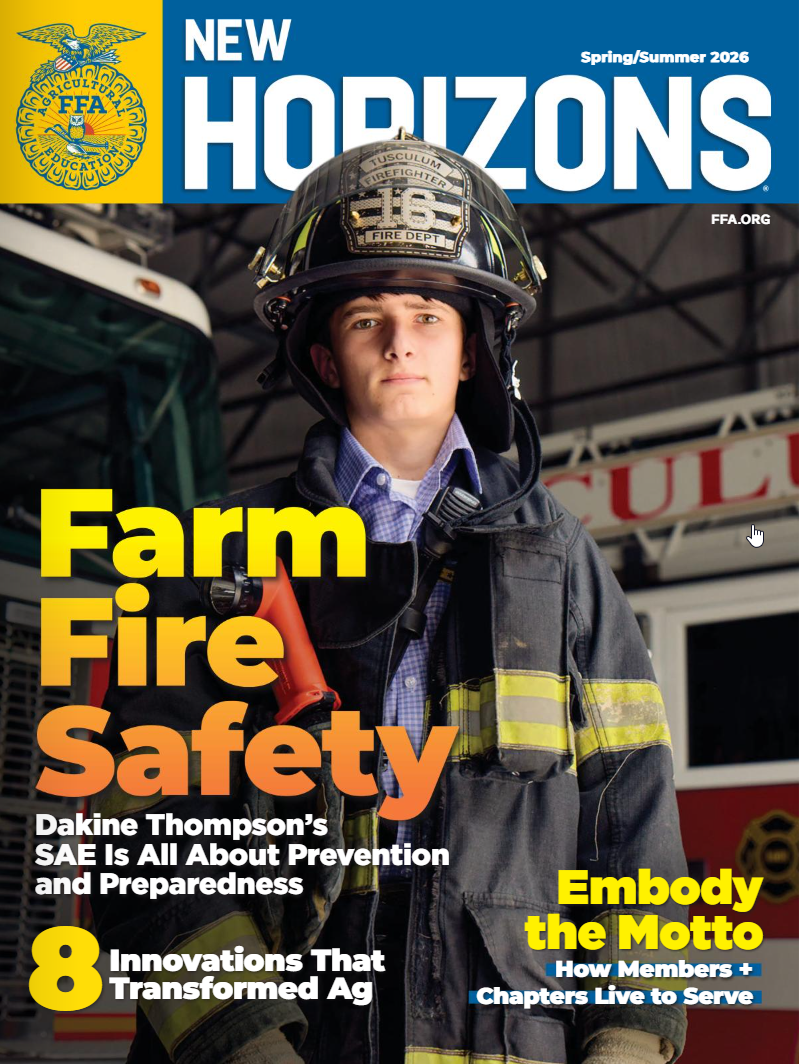Tahja Sims Is Amplifying Voices in Agriculture

Tahja Sims deepened her understanding of agriculture by attending Texas A&M University. Photo courtesy of Tahja Sims.
This year, Texas FFA Alumna Tahja Sims is exploring a variety of agricultural topics and issues, and elevating diverse perspectives, as part of a year-long internship with AGDAILY, a digital publication and news outlet.
“I explain diversity as people who have found connections to agriculture in unexpected ways,” Sims says. “It’s broad, and could include women farmers, especially in developing countries, or small growers responding quickly to consumer trends and preferences.”
A recent graduate of Texas A&M University with a major in agricultural economics, Sims analyzed racial inequalities and misinformation in food and environmental policy as an undergraduate research assistant. She also interned with the U.S. House of Representatives and The Russell Group, a government relations firm specializing in food and agriculture public policy, and is a member of the Minorities in Agriculture, National Resources and Related Sciences (MANRRS) organization.
Although she has extensive experiences, Sims says she’s surprised everyday by, “how widespread agriculture is and that diversity can be found in the smallest, most unexpected places.” She cites recent AGDAILY interviews with a Wisconsin producer running a cattle operation on 13 acres and Historically Black Colleges and Universities (HBCUs) in North Carolina hosting a 4-H camp focused on developing college preparedness.
Hooked on Animals
Sims’ introduction to agriculture occurred in middle school, when FFA members from a nearby high school in Spring, Texas, hosted a booth at a school event.
“They explained FFA helped develop leadership and members raised animals, but all I heard was ‘animals’ because I had never had a pet,” she says. “My first FFA animal was a rabbit, but that wasn’t interactive enough for me.”

After joining FFA, Sims quickly fell in love with the process of raising and showing pigs. Photo courtesy of Tahja Sims.
Raising pigs proved pivotal. Feeding, brushing and walking her pig twice a day provided the hands-on, nurturing experience Sims sought. “I had no idea what I was doing, but with the help of my advisor, I learned,” she adds.
She also participated in competitions like the Texas FFA Quiz Bowl. “The greatest lesson I learned in FFA is that how much you put into something is how much you will get out of it. With my pigs, I had no idea what I was doing at first, so I felt really accomplished when I did it.”
As she continues to amplify agriculture’s many voices through her internship, Sims learns more about the industry’s impact. “There is not one face or model for what agriculture is,” she says. “It’s continually changing as it addresses the needs of the population, which is continuously changing as well.”


